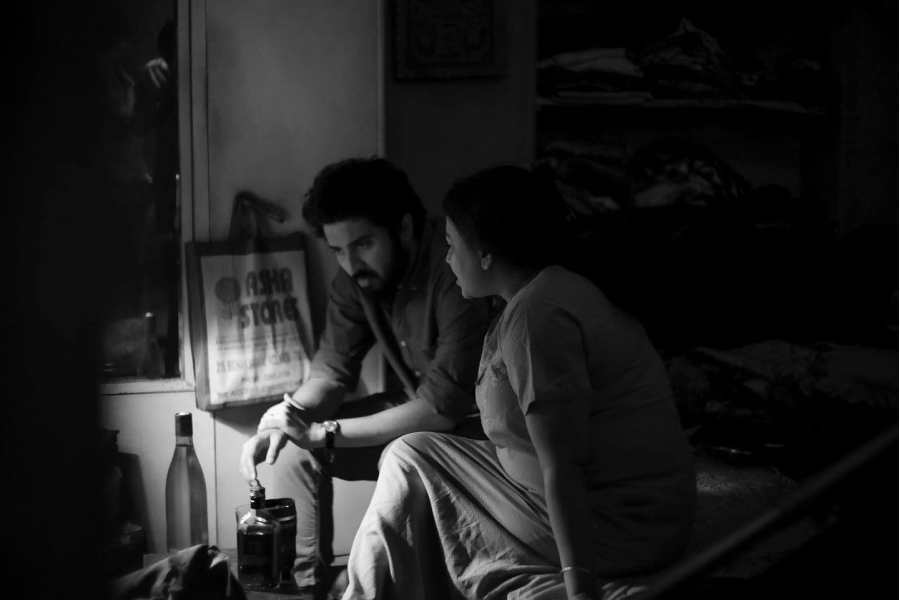Aditya Vikram Sengupta’s Mayanagar is finally set to release theatrically in Bengal on February 7, four years after its world premiere at the Venice International Film Festival. As the film prepares to meet its audience in its home city, The Telegraph Online chatted with Aditya Vikram to discuss the challenges of bringing Mayanagar to the big screen, how he feels Kolkata has changed over the years, and the evolving landscape of filmmaking in Bengal and India.
Four years after its premiere at the Venice International Film Festival, Mayanagar is releasing at theatres in Bengal. How was this journey?
Aditya Vikram Sengupta: It was an eventful journey. Cinema, as a medium of art, is dependent on many factors. You can’t control it even if you want to. The Indian partners backed out midway into the making of Mayanagar. After that, one of the actors in the film, Arindam Ghosh, gave the funds. Even after that, another producer disappeared before the film’s premiere. He had to be located and then we acquired the operations rights for the film. After a lot of struggle, we finally finished the film. It is being released; that’s a matter of joy.
How did the idea of Mayanagar take shape?
Aditya Vikram Sengupta: I left Kolkata in 2004 but I did not leave for good; my parents live here. Since 2010, I have been noticing rapid changes in the city. There was a regime change in the state in 2011. Then the technology boom happened. The general appetite and attitude of people changed very rapidly, not just in Kolkata but all across the world. I noticed it in Kolkata because it is my home. Films are usually like reactions, an attempt to process the world I’m reacting to, with the hope that I understand it better. This was my thought process behind writing the film.
I remember when I first started working on the script, the Ma flyover was under construction and it came neck to neck with the dinosaur statue that once stood outside Science City. It felt like a race between the two. I captured an image of that moment and it remained etched in my mind as I applied for grants. That visual played a key role in shaping the film’s concept.
Mayanagar is essentially a story of humans. I shot the film between 2018 and 2019, and even since then, I’ve noticed drastic changes in people. The city has become lawless and human behaviour now often verges on the extreme. Kindness and empathy seem to have hit rock bottom. This shift affects me deeply, making it difficult for me to live in the city for extended periods.
Even the Bengali film industry has witnessed an upheaval. Filmmakers and the Federation of Cine Technicians Workers of Eastern India were at loggerheads last year. What is your take on that?
Aditya Vikram Sengupta: The federation tried to halt our shoot as well. However, they ultimately had no grounds to intervene once they realised I did not have a single crew member from Kolkata. Their usual tactic is to withdraw local crew from productions, creating obstacles for filmmakers who have no option but to shoot entirely in Kolkata with a city-based team. This forces them to hire unnecessary heads, inflating costs and complicating the process. It operates like a syndicate — no, it is a syndicate — disguised as an artistic and cinematic collective. While it may not be illegal, it is undeniably unethical.
Obviously the art takes a beating because of this…
Aditya Vikram Sengupta: I’m not very tuned into how films are being made here, nor am I tuned about the process in Mumbai, by the way. From what I know, the number of days for shooting a film is very low, and the reason is obvious. If you are forced to take four times the people you require, you’ll have to make budget cuts in some other way. I have heard that films are made in 15-20 days here. I won’t say if it is wrong or right but I won’t be able to make a film in this way.
What was the reason for choosing Gokhan Teriyaki as the cinematographer?
Aditya Vikram Sengupta: I really like his work. And also a lot of it is funding related because we had foreign funds and had mandates. The experience of working with him was fantastic. But it was very difficult for him because it was the first time he moved out of Europe. And the first place he lands in is Kolkata. From dust to pollution to honking and what not, he was here for two months and managed really well. We had a really good time.
Any new films that you watched and would recommend others to watch?
Aditya Vikram Sengupta: Recently I watched The Substance, starring Demi Moore. I thought it was quite a work of art. It was very maximalist but very well made. It was commendable for someone like Demi Moore to be completely open with her body in the film. I liked how they rendered the film.
What are your upcoming projects?
Aditya Vikram Sengupta: There are many plans. I have been writing and there are many films I’ve been wanting to make. But it’s just very difficult for films to come together these days, unless of course you are making the kind of films producers think “will work”. Although I want to get into making mainstream films, it’s not aligned with what they think will work. I strongly believe that new ideas have a higher possibility of working than something which is a copy of another project from, say, the South.










